

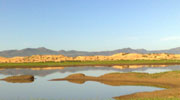
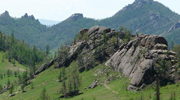
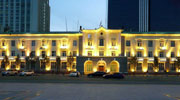
» 1 day - 13th Century Theme Park tour
» 1 day - Bogd Khan National Park tour
» 1 day - Capital city tour
» 1 day - Capital city tour (full)
» 1 day - Shopping tour
» 2 days - Hustai NP tour
» 2 days - Hustai & Terelj National Parks tour
» 3 days - Sand dune & Karakorum tour
» 4 days - Terelj NP, Sand dune and
Karakorum tour
» 5 days - Steppe tour
» 6 days - Central mongolian beauties tour
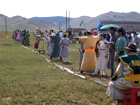
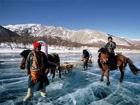
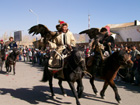
» Naadam Festival 7 days
» Mongolian Lunar New Year Festival 6 days
» Thousand Camels Festival 6 days
» Ice Festival in rein deer land 6 days
» Golden eagle festival 11 days
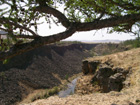
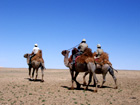

» Panoramic circle 10 days
» Mongolian beauty tour 11 days
» Golden Gobi tour 9 days
» Heartland of the stepe 7 days.
» Discover Incredible Mongolia 18 days
» Great Gobi camel caravan tour 11 days
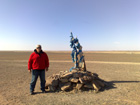
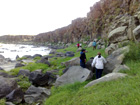
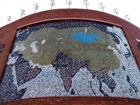
Our Ulaanbaatar office working hours:
Monday-Friday: 9.00 am-6.00 pm.
book your favourite or customised tour with
Email: tour@incrediblemongolia.com
audreymongolia@gmail.com
URL: www.Incrediblemongolia.com
UB time now
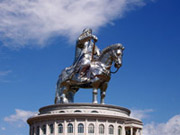
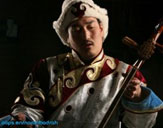
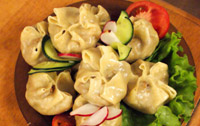
» Mongolia in brief
» Unique culture
» Mongolian Cuisine
» Chronicles of Main Political Events
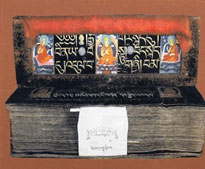 Culture
Culture
Mongolians had their own ancient nomadic culture. It includes script, arts, traditions, books, interpersonal, relations and behavior, relationship with nature, literature, architecture designin g etc.
Dwelling, clothing, craft, cooking of Mongolians are of various types stemming from the time of ancient tribes. Mongolians had their own national official script since Chinggis Khan’s time and that has been changed several times until 1940, when the Cyrillic scrip was finally adopted. At present, besides Cyrillic thenational script is taught in formal education programmes.

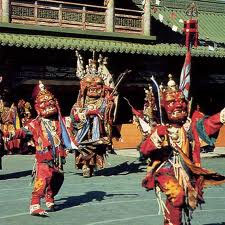 Fine art & handicraft:
Fine art & handicraft:
Different types of fine art have had their long- lasting popularity among Mongolians. Mongols have traveled a long way from rock- drawing to Mongolian modern fine art. One or multi colored drawing, block- printing, copper printing, woodcut, decoration drawing, and casting pictures are an important part of the Mongolian culture. These made by using various methods such as paper-mache, a craft of sticking thin paper or cloth over a removable model; a craft consisting of producing a picture in relief using a compound of various substances such as crushed glass with glue, embossed work, stone split and casting.
Concerning fine arts, much progress has been achieved in XX century, many drawings xreated by utilizati on of classical traditions methods can be seen in the Mongolian fine art museum.
Also, a great number of works have been produced with modern methods. Peculiar attractions are Mongolian sculpture, sewn, decoration art, decoration patterns, appliques and embroidered items.

Music & musical instrument
Music is an important part of traditional society and is considered to bring good fortune. Songs are sung anywhere- to pass the time on long journey on the back of horse, to put baby to sleep, to bring luck at holidays on festivals, to convey teachings to children and so on.
The principle national instruments associated the Mongolian folk repertory of today are the Khuuchir, Yochin, Yatga, limbe, shanz and morinkhuur.

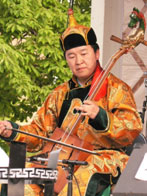 Morin khuur is very ancient string musical instrument originated in Hunnu time, 3rd BC. From early times the Morin khuur was transferred from generations adapting to accompany long and short songs and chants. Every Mongolian house hold holds in high regard the presence of a Morin Khuur at their home. It has become the symbol of weather the guest will have success in the work, particularly its sound expected to bring happiness at home and blows negative energy.
Morin khuur is very ancient string musical instrument originated in Hunnu time, 3rd BC. From early times the Morin khuur was transferred from generations adapting to accompany long and short songs and chants. Every Mongolian house hold holds in high regard the presence of a Morin Khuur at their home. It has become the symbol of weather the guest will have success in the work, particularly its sound expected to bring happiness at home and blows negative energy.
The Morin Khuur is wildly used in Mongolian celebration Naadam and Feasts. One of famous composed music for morinkhuur is ‘TumenEkh’ top of ten thousand horses was considered as the mother of stately hymns.

 UNESCO listed Mongolian throat singing
UNESCO listed Mongolian throat singing
Mongolia is considered as the most active place of throat singing in the world. Invaluableand unique singing developed in Mongolia in its classical form specially has originated from south western Mongolia its special sound made in unison with the tongue, teeth, larynx and palate. To put it simply, it is a replacement of musical instruments with all aspects of vocal organs. It is said that there is no other nation in the world that can combine such human physical capacity in place of musical instruments, than Mongolia.
The Mongolian art of singing: Khoomei or ‘throat singing’ is a style of singing in which a single performer produces a diversified harmony of multiple voice parts, including a continued bass element produced in the throat. Khoomii singers may perform alone or in groups. Traditionally performed on the occasion of ritual ceremonies, songs express respect and praise for the natural world, for the ancestors of the Mongolian people and for great heroes. The form is reserved for special events and group activities such as horse races, archery and wrestling tournaments, large banquets and sacrificial rituals. Khoomei has long been regarded as a central element representing Mongolian culture and remains a strong symbol of national or ethnic identity.
